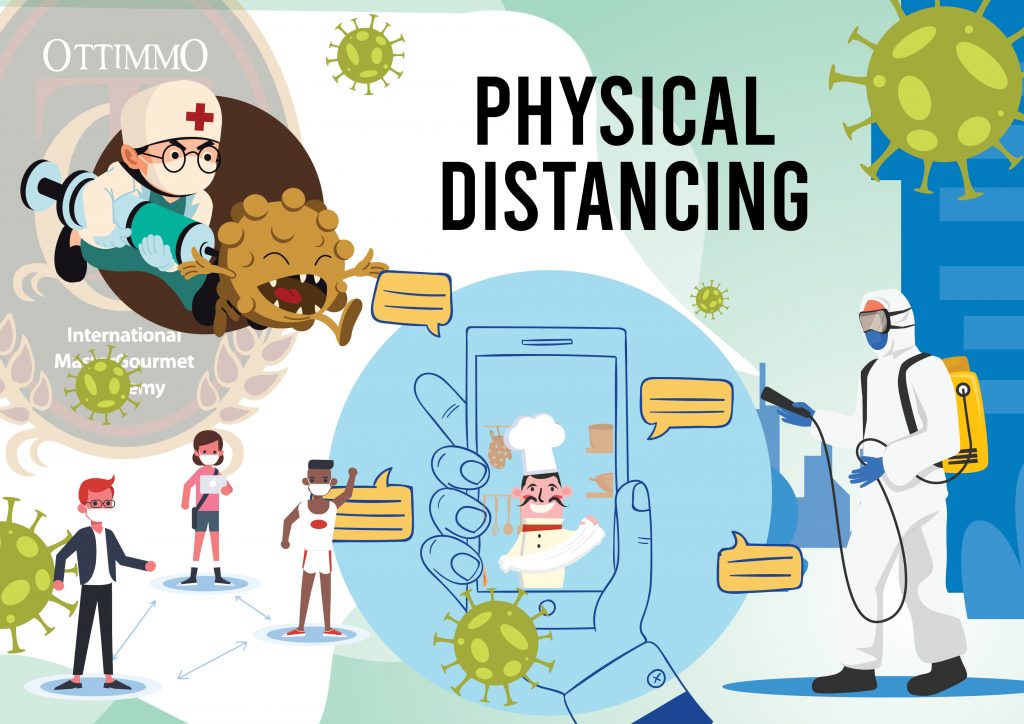
The Centers for Disease Control and Prevention (CDC) believes that the coronavirus is spread from person to person, mainly through respiratory droplets produced when an infected person sneezes, coughs, or speaks rapidly in close proximity to someone else. Corona virus has inhibited all activities around the world. Including the matter of eating habits in restaurants that are now feared because it relates to the possibility of corona virus transmission. It is even reported that many restaurants have closed their stores since the emergence of Covid-19.
To date, the CDC hasn’t reported any cases where patients contracted COVID-19 by eating food. Although there are no reports of COVID-19 transmitted through food or food packaging, Foods and Drugs Adminstration (FDA) still require restaurant to always be disciplined and responsible in good manufacturing practices in the process of handling, processing and preparing food.
There are several advices to prevent covid-19 transmission in restaurant:
• Stay home when you are sick.
• Make sure restaurant, premise and equipment for processing food are clean and sanitize using bleaching solution. Also, frequently sanitize commonly touched surfaces and objects such as electronics, door knobs, faucet handles, counter tops, cash machine key pads, dining tables frequently throughout the day.
• Provide alcohol based (60%) hand sanitizers for use for both employees and customers by placing them at convenient/accessible locations.
• Stop self-serve style operations, including salad bars, buffets and dispensers.
• Keep a physical distance of 1 meter between visitors
• Implement good personal hygiene for employees.
• Mandatory use of mask for visitors
• Employees and visitors, if forced to eat on site, always wash their hands using soap and running water for at least 20 seconds.
• Serve freshly cooked food
• Avoid heating food repeatedly
• Better take away, drive thru or using delivery service
If there are employees have higher risk for coronavirus with underlying health conditions, such as people 60 or older, people with underlying health conditions (heart disease, lung disease, or diabetes) or those with weakened immune systems or those who are pregnant: consider temporarily assigning employees with underlying health conditions to non-public-contact duties.